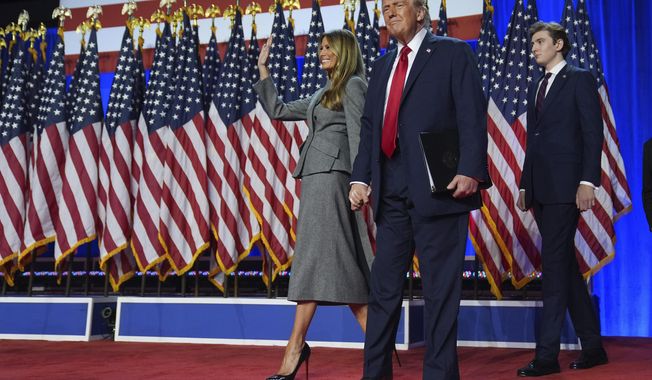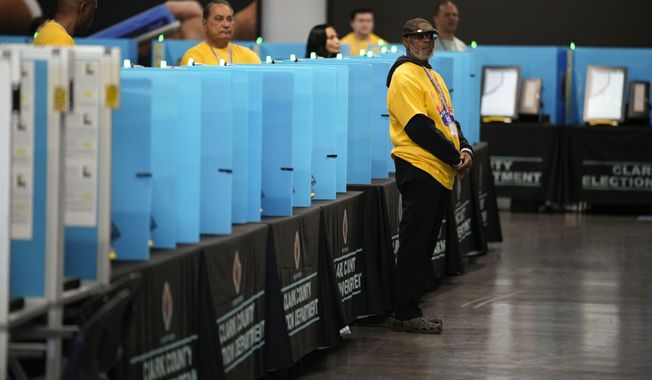
FILE - In this Wednesday, Oct. 31, 2018 file photo, men work on the construction site of the Ras Abu Aboud stadium, backdropped by the city skyline in Doha, Qatar. A FIFA feasibility study concluded the 2022 World Cup can expand to 48 teams by using at least one of Qatar's neighbors as an additional host, and found there is a low legal risk to changing the format and an additional $400 million in revenue could be generatedThe Associated Press obtained a copy of the 81-page report on Monday, March 11, 2019 that assesses the political, logistical and legal issues surrounding adding 16 teams _ a significant change to the format more than eight years after Qatar won the hosting rights. (AP Photo/Vadim Ghirda, File)
Featured Photo Galleries

Trump Transition: Here are the people Trump has picked for key positions so far
President-elect Donald Trump has announced a flurry of picks for his incoming administration. Get full coverage of the Trump transition from The Washingon Times.

Trump dances onstage, takes post-election nation by storm
President-elect Trump dances onstage












